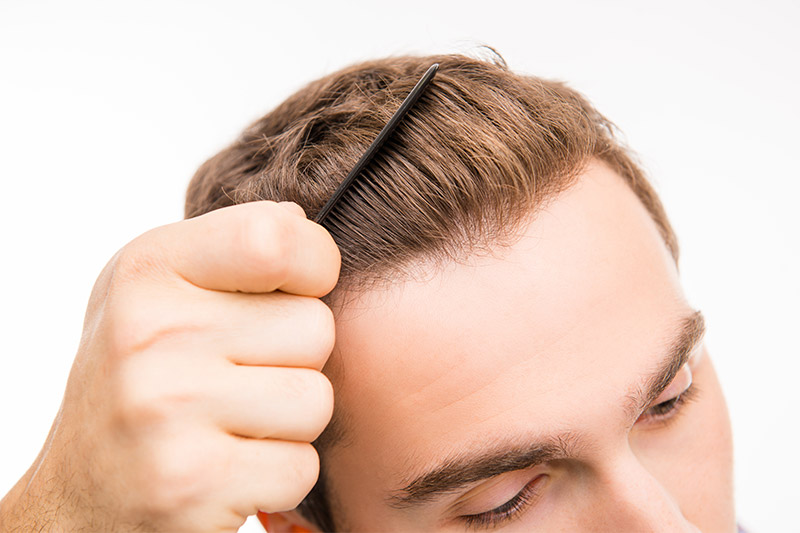
Why Hair Transplant Aftercare is Crucial for a Successful Recovery?
A hair transplant is a delicate and transformative process that requires diligent care after an operation to ensure maximum results. The success of hair transplant aftercare relies on the surgeon's proficiency and how the patient complies with post-operative care procedures. Adequate hair transplant aftercare is vital to secure the latest implanted hair follicles, improve healing, avoid complications, and contribute to new hair's longevity and appearance. In this blog, we comprehend why post-hair transplant care is essential and enables patients to achieve the best possible result and enjoy its complete benefits.
Why is Hair Transplant Aftercare Important?
At Hair Regain Clinic, aftercare of a hair transplant is as crucial as the surgery itself. If doctors properly give the patients instructions, it helps them to achieve maximum results and avoid the risk of a second surgery.
1. Reduce the Risk of Swelling and Discomfort
Swelling and discomfort are the causal signs of a hair transplant. Usually, the swelling occurs near the eyes and forehead, but it is a sign of healing. However, following hair transplant aftercare enables swelling and discomfort to be reduced. While sleeping, keep your head elevated, apply ice packs, and comply with doctors' recommendations on anti-inflammatory medicines that enhance the symptoms. However, managing swelling will ensure patients recover quickly and prevent pressure on the grafted area.
2. Minimize the Complication Risk
After surgery, there are certain complications faced by patients, like infection, scarring and bleeding, that will jeopardize hair transplant recovery chances. For instance, the patient should avoid smoking and alcohol, which can interfere with blood flow and healing and reduce complications. Adhering to the doctor's guidance on physical exercise and sun exposure helps protect scale. So, if the patients neglect the aftercare precautions, they may face unnecessary risk, prolonging recovery and compromising the surgery outcome.
3. Protecting Fragile Grafts
After surgery, the newly implanted follicles become sensitive and unsafe. The grafts will take time to repair in the graft meanwhile; any interference in the healing process will dislodge them. Thus, proper care after surgery is necessary and follows the rules of not touching the scalp and ensures follicles remain undisturbed. Even minor infections with grafted sections dislodge the follicles, resulting in uneven hair growth.
4. Infection and Scar Prevention
One needs to ask two main questions after surgery: Whether or not the person is a candidate for readmission due to infection. Bacteria quickly colonize the scalp because, during hair transplant procedures, minor incisions or punctures are made. If appropriate hair transplant aftercare is not taken, the chances of getting an infection rise, leading to the destruction of the grafts and the forming of scars.
Infection hampers the rate at which wounds heal, triggers other complications and, at worst, leads to shedding off the newly transplanted hair. Patients should avoid infections by washing the scalp, using the prescribed topical treatments, and avoiding areas with high bacterial content after the procedure.
5. Promoting Long-Term Success
Aftercare essentials in hair transplantation are to appreciate the importance of the healing period and further development for the outcome. Appropriate procedure care ensures that grafts are healthy, hair grows as expected, and it is permanent. Lack of proper aftercare can cause later issues with the transplant's durability, and survivors may need further surgery later in life. If the patient manages the scalp well during the initial phase of the treatment, the implants will last for a long time, and the results will be natural looking.
6. Accelerate the Healing Process
The healing process after a hair transplant may take a few weeks. Thus, adequate aftercare will accelerate the process by enhancing a healthy environment for the scalp to recover. The patients must take certain precautions like washing their hair softly, avoiding strenuous activities, and avoiding sun exposure; these will encourage quick healing. If you avoid this post, hair transplant care may extend the recovery period, enhance the chances of complications and delay the desired results.
7. Mental Health
One cannot underestimate the importance of hair transplant operations as it is not only a change of appearance but a drastic change in a man's self-esteem and psychological well-being. Adequate aftercare means that the patients get what they want and have confidence in their appearance, thus enhancing their psychological health. Patients must understand that hair restoration is slow and that expectations must be controlled during healing. Hair growth is going to take some time, but through proper follow-up, patients can have the assurance of having done everything possible for the transplant to work.
Conclusion
As with most surgical procedures, hair transplant requires aftercare, which must be emphasized. It is essential to determine the best outcome in hair growth and satisfaction levels, as stated following the recommendations that patients can safeguard their grafts, manage risks of infection, speed up the healing process, and preserve the outcome. Therefore, proper hair transplant aftercare guarantees that the procedure is worth the investment since it may help improve one's looks and self-esteem for several years.
Our expert team at Hair Regain is focused on offering 100% natural and long-term hair transplantation techniques. Get started to enjoy fuller hair and be confident today!